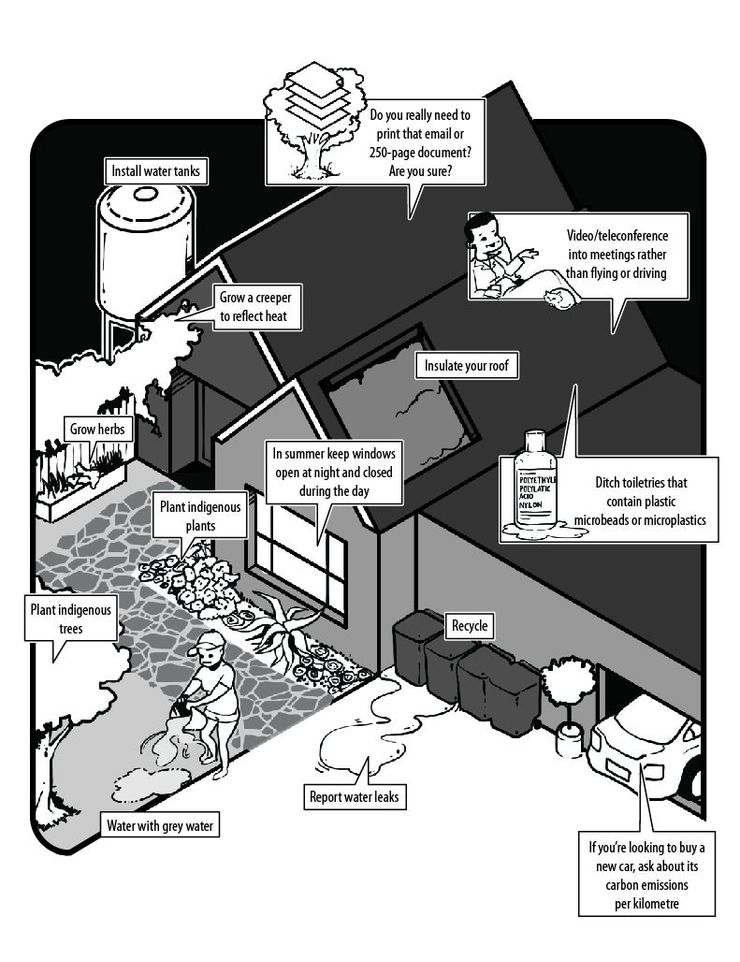South Africa's Survival Guide to Climate Change
A practical handbook that explores what climate change is likely to mean for us as South Africans, how we can prepare for it, and how we can – in our everyday lives – help to mitigate the impacts it will have.

“Accessible, well researched, brilliant. Even I understood it, and I’m a puppet. I’m going to have to recycle myself.” - Chester Missing
South Africa’s Guide to Climate Change by Sipho King and Sarah Wild rests on the idea that we could possibly survive a changing climate. Temperatures are already climbing; sea levels are rising and parts of South Africa are on their way to being uninhabitable. Life is already incredibly hard for many people and nobody will be exempt from climate change. Circumstances are going to get a lot more difficult very soon, and we need a plan.
What should we be doing at our homes to reduce carbon footprint? Read the extract below for idea on how you make changes at home.
The internet is teeming with advice about how to make your home more climate friendly, but this advice should be treated with suspicion and this holds for all things in life, from energy-saving measures through to diagnosing your illness on Google. If you were to follow some of these suggestions, you might find yourself in a self-dug bunker, surrounded by tin cans, wearing a tinfoil hat. So we asked scientists, government officials and activists what they think South Africans should be doing at home to reduce their carbon footprint, make their homes more energy efficient, and become more environmentally friendly. We’ve split it up into mitigation (things that reduce your carbon footprint, save water) and adaptation (things that make you, your house and your family better able to cope with climatic changes). This list is in no way comprehensive, neither is it prescriptive. It focuses on the major risks, particularly in cities, that you’re likely to face: water (either scarcity or flooding) and temperature. Some of these suggestions could work for you, some may not. Some require a capital investment, others don’t. Remember: every little bit makes a difference.

Sipho Kings and Sarah Wild have been reporting on different facets of climate change for most of their careers. This book is an easily digestible version of what they have learned and written about. As in any emergency, there are no guarantees, but rather than feeling apathetic and disempowered, it is far better to be informed and prepared.
South Africa's Survival Guide to Climate Change
by Sipho Kings
A practical handbook for navigating the climate crisis in South Africa
South Africa's Survival Guide to Climate Change is a crucial handbook that explores the impending impacts of climate change on South Africa and offers practical strategies for preparation and mitigation. As temperatures climb, sea levels rise, and parts of the country face the risk of becoming uninhabitable, this guide serves as a vital resource for all South Africans. Recognizing that life is already challenging for many and that no one will be exempt from the effects of climate change, authors Sipho Kings and Sarah Wild provide a comprehensive plan to navigate the increasingly difficult circumstances that lie ahead. Through everyday actions and informed decision-making, readers will learn how to not only survive but also contribute to lessening the impacts of climate change. This essential guide rests on the idea that with knowledge, preparation, and collective action, South Africa can weather the storm of the climate crisis.


